SAFARI
NORTHERN CIRCUIT
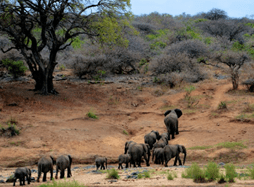
Arusha National Park covers Mount Meru, a prominent volcano with an elevation of 4566 m, in the Arusha Region of north eastern Tanzania. The park is small but varied with spectacular landscapes in three distinct areas. In the west, the Meru Crater funnels the Jekukumia River.
ARUSHA NATIONAL PARK
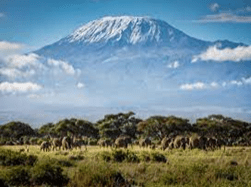
Mount Kilimanjaro is a dormant volcano in Tanzania. While most only have two, it has three volcanic cones: Kibo, Mawenzi, and Shira.
MT. KILIMANJARO
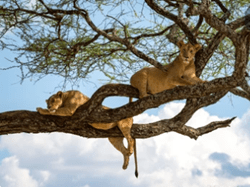
Lake Manyara National Park is a protected area in Tanzania's Arusha and Manyara Regions, situated between Lake Manyara and the Great Rift Valley. It is administered by the Tanzania National Parks Authority, and covers an area of 325 km² including about 230 km² lake surface.
LAKE MANYARA NATIONAL PARK
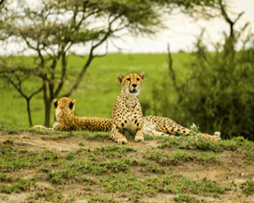
Tarangire National Park is a national park in Tanzania's Manyara Region. The name of the park originates from the Tarangire River that crosses the park. The Tarangire River is the primary source of fresh water for wild animals in the Tarangire Ecosystem during the annual dry season.
TARANGIRE NATIONAL PARK
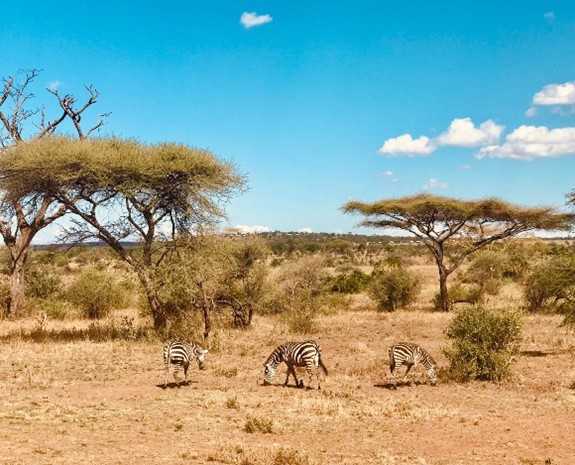
The Serengeti ecosystem is a geographical region in Africa, spanning northern Tanzania. The protected area within the region includes approximately 30,000 km² of land, including the Serengeti National Park and several game reserves.
SERENGETI NATIONAL PARK
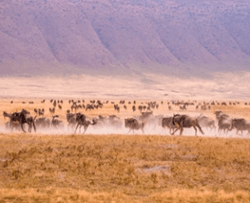
The Ngorongoro Conservation Area spans vast expanses of highland plains, savanna, savanna woodlands and forests. Established in 1959 as a multiple land use area, with wildlife coexisting with semi-nomadic Maasai pastoralists practicing traditional livestock grazing, it includes the spectacular Ngorongoro Crater
NGORONGORO CRATER
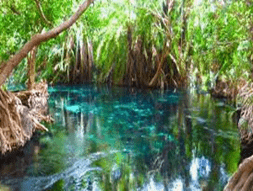
Travelers to Tanzania usually base in Arusha or Moshi in between hiking trips and safaris. While recovering from multi-day tours and hiking trips one of the best things to do is a day trip to the Chemka Hot Springs, also known as the Kikuletwa Hot Springs.
CHEMKA / KIKULETWA HOT SPRINGS
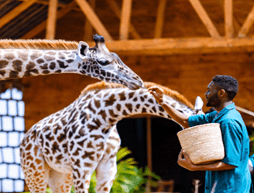
Serval is a home to a variety of different animals such as the Majestic African Lions, Calm Colobus Monkeys, Graceful Masai Giraffes, Nocturnal Bat-eared Foxes, Exquisite Elands, Oafish Ostriches, and Mischievous Blue and Vervet monkeys!
SERVAL WILDLIFE
SOUTHERN CIRCUIT
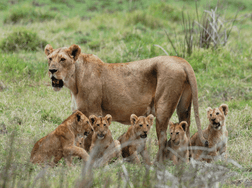
Mikumi National Park is a national park near Morogoro, Tanzania with an area of 3,230 km² that was established in 1964. It is the fourth largest in the country. The park is crossed by Tanzania's A-7 highway.
MIKUMI NATIONAL PARK
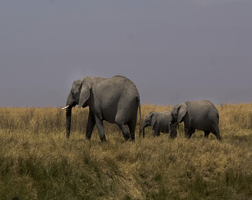
The Selous Game Reserve, now renamed Nyerere National Park, is a protected area in southern Tanzania. It covers a total area of 50,000 km² and has additional buffer zones. It was designated a UNESCO World Heritage Site in 1982 due to its wildlife diversity and undisturbed nature.
NYERERE NATIONAL RESERVE
(SELOUS GAME RESERVE)
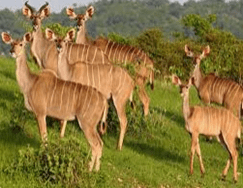
Ruaha is now Tanzania's second largest national park (after Nyerere NP) and offers excellent wildlife viewing. It is particularly good for spotting predators, including very large prides of lion and the endangered wild dog. Elephants and a variety of antelope species are another big draw to the park.
RUAHA NATIONAL PARK
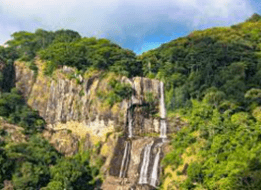
is a national park in Tanzania with a size of 1,990 km2 (770 miles2).[2] The habitats contained within the national park include tropical rainforest, mountain forest, miombo woodland, grassland and steppe.
UDZUNGWA MOUNTAINS
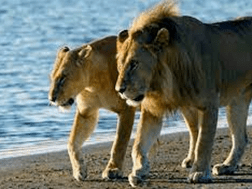
Saadani National Park is Tanzania's 13th national park and has an area of 1,062 km². It was officially gazetted in 2005 and is managed under the Tanzania National Parks Authority. The park is located administratively in southeast Pangani District of Tanga Region and northeast Chalinze District of Pwani Region.
SAADANI NATIONAL PARK
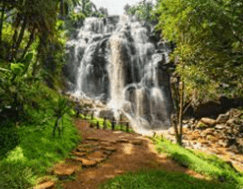
The Usambara Mountains of northeastern Tanzania in tropical East Africa, comprise the easternmost ranges of the Eastern Arc Mountains. The ranges of approximately 90 kilometres long and about half that wide, are situated in the Lushoto District of the Tanga Region.
LUSHOTO USAMBARA MOUNTAINS
